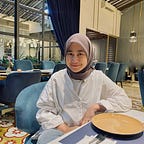Something Left in Jimbocho, Tokyo
In early February, I embarked on a trip to Japan with my friend, a duo adventure that I had eagerly awaited for a long time, investing considerable effort along the way.
For starters, I have had a long-standing interest and love for Asian literature, especially Japanese literature. To be clear, my favorite novelists are Haruki Murakami, Mieko Kawakami, and Keigo Higashino.
However, in mid-2023, I bought and read ‘Days at Morisaki Bookshop,’ a slice-of-life novel by Satoshi Yagisawa set in Jimbocho, a book town in Tokyo. After reading the first 2–3 chapters, I decided to continue reading it in the actual setting of Jimbocho. In the meantime, I also read ‘Kitchen’ by Banana Yoshimoto, but it was a slow read; I deliberately didn’t want to finish it quickly. I really appreciated the idea of happiness portrayed by Banana Yoshimoto.
“Everyone lives the way they know best. What I mean by their happiness is living a life untouched as much as possible by the knowledge that we are really, all of us, alone. That’s not a bad thing.”
It’s not often that the word ‘happiness’ stands beside ‘alone,’ is it?
Anyway, I went to Jimbocho alone because my friend and I decided to separate for a day to enjoy ourselves, and we actually had different destinations in Tokyo. When I first stepped out of the metro station and felt the air of Jimbocho, the excitement inside my body grew bigger. That feeling increased even more when I saw the racks of books sticking to a wall: the bookstore that I always saw on the internet (Pinterest, Unsplash, YouTube).
With my excitement bubbling, I finally arrived at my main destination: Book Cafe Work, a book cafe in central Jimbocho. I wanted to read the remaining chapters of ‘Days at Morisaki Bookshop’ there, just like the locals. Upon arrival, I bought a hot ocha to warm myself up and settled into an empty chair in front of the book rack. The ambiance was delightful, unlike anything I had experienced during ‘me time’ in my hometown. Everyone at the café had something to read, work on their laptop, or browse on their Kindle. I began reading my book.
The main character had just broken up with her boyfriend and decided to quit her job, then live and work at her uncle’s bookshop. She didn’t like to read at first, but after several months living there, she started to feel something that she had never felt before. Something that felt like ‘heal’ and ‘rest.’ Meeting new people and understanding ‘living life.’ After several chapters, some dialogue with her uncle stunned me.
“…. Maybe it takes a long time to figure out what you’re truly searching for. Maybe you spend your whole life just to figure out a small part of it.”
“It’s important to stand still sometimes. Think of it as a little rest in the long journey of your life.”
I really loved that dialogue. Besides, it relates to my condition, and I feel like people nowadays forget about it and just run with the flow of life without thinking about what they are looking for. That dialogue conveys reflections on the journey of self-discovery (from the uncle’s point of view) and the significance of taking pauses in life. It speaks to the complexity and depth of human existence and the ongoing quest for self-awareness and fulfillment.
I paused reading and looked around. The ambiance was just right for the book I was reading, of course, because the storyline is set in Jimbocho, the area where I sat right now. That evening felt really slow, not too slow, nor quiet, the situation was moving slowly but lively. I didn’t want to go back.
I strolled around the streets, visited small shops, and bought several souvenirs and magazines. I had a short chat with the shopkeepers and got some freebies (lol) like bookmarks, postcards, and more. Walking around Jimbocho felt so light. When you looked around, there were 3–4 people standing still in front of the book rack. People were walking with books in their hands, high schoolers hanging out with their friends in coffee shops. The ambiance (again) was so nice that I went teary-eyed because it had been a long time since I felt this quiet, yet lively. There were no vehicle noises or the sound of people talking loudly.
Two months later, I still picture Jimbocho’s ambiance in my head. After a long day at work, going home through such a bustling city… The noise of the vehicles, people shouting at each other on the street, the air that made my nose and throat tight, I thought I wanted to run away.
But I remembered the dialogue in ‘Days at Morisaki Bookshop’: maybe it takes a long time to find the small parts of things that I want. This life, this routine, it’s a journey to find my destination. The book and Jimbocho unexpectedly had a strong impact on me. The important thing is, right now, I’m still living, not a perfect life, but this is living. I’m living my best life.
Until next time, Jimbocho!
